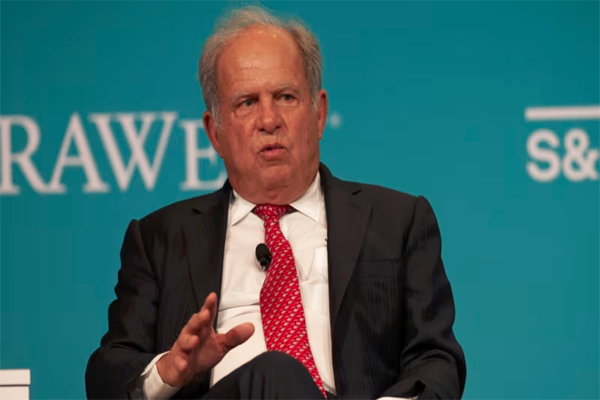
Jamie Smyth, Myles McCormick, FT (Financial Times)
HOUSTON/NEW YORK
EnergiesNet.com 10 12 2023
When Scott Sheffield began working for Parker & Parsley as a young petroleum engineer in 1979, he joined a company trying to make a go of a west Texas drilling play once dubbed “the graveyard of the oilman’s hopes”.
That was not Sheffield’s fate. This week he flipped the company, which later became Pioneer Natural Resources, to ExxonMobil for nearly $60bn in the US oil industry’s biggest transaction in decades. In the past decade Pioneer helped revive the moribund Permian Basin of Texas into a critical source of global energy supply.
“We took something people thought was uneconomical and turned it [into] probably the largest oil and gas basin in the world,” Sheffield, 71, told the Financial Times. “When you include all the natural gas and the natural gas liquids with the oil, it’s as big as Saudi Arabia.”
No one embodies the wild ride the US oil patch has been through in recent decades more than Sheffield, a plain-talking Texan.
The Exxon deal draws a line under a long career that has spanned huge upheavals in the industry, including two Opec price wars and an unprecedented crash in crude prices to below zero in 2020, as well as the emergence of climate change as a fundamental concern for investors.
As US crude production soared, Sheffield was a leading voice in the drive to lift the country’s longstanding curbs on exports in 2015. He became a symbol of the industry’s profligacy during the height of the shale drilling boom and later led the charge to rein in the sector’s spending to appease an irate Wall Street.
People who have worked with Sheffield describe him as a hands-on chief executive, a fierce competitor and outspoken on big issues. That set him apart from the more staid leaders at some of the giants of the industry.
“Scott had a somewhat unique position in the sense that he bridged the world between the smaller independent, because that’s what he started as, and the major oil company, because that’s what he became,” said Bobby Tudor, founder and chief executive of investment and advisory group Artemis Energy Partners.
Sheffield has worked in almost every facet of the oil industry. After initially flunking out of the University of Texas in the early 1970s for what he described as doing “too much of everything but studying”, his father sent him to work on an offshore drilling rig for six months.
“Let’s just say it didn’t take long for me to realise that a college degree is very important,” he told students at the university during a speech in 2016.
Sheffield later returned to university, switched courses to study petroleum engineering, graduated and joined the oil company Amoco Production in Odessa, Texas. After joining Parker & Parsley he rose to become its chief executive a decade later. In 1997 he merged the company with rival Mesa Petroleum to create Pioneer.
The company became a leader in the shale revolution that unfolded as enterprising wildcatters employed hydraulic fracturing and horizontal drilling techniques to blast open previously unreachable oil and gas. US oil production rocketed from about 5mn barrels a day in 2008 to 13mn b/d this year.
As Pioneer and other frackers spent billions of dollars on drilling, Wall Street grew weary of their mounting losses. Pioneer was singled out as the embodiment of the industry’s profligacy by hedge fund manager David Einhorn, who dubbed the company the “mother-fracker”.
“We were definitely overspending,” said Sheffield. “So in a way, I think you can say he was right. But he shorted us and he was wrong on the short, because we all changed.”
As investors fled the oil patch, Sheffield in 2019 returned to Pioneer after a brief retirement as a champion of a new model of capital discipline. Gone were the days of debt-fuelled drilling binges and in their place was a focus on shareholder returns.
When the coronavirus pandemic crushed oil prices in 2020, Sheffield was among the oil bosses who pleaded with Texas regulators to intervene to limit oil production in the state in a bid to rescue the shale industry.
“It has been an economic disaster, especially the last 10 years. Nobody wants to give us capital because we have all destroyed capital and created economic waste,” Sheffield said at the time, warning that without state action the local oil industry might not survive.
But he also took advantage of the downturn, snapping up rival Permian producers Parsley Energy and Double Point Energy in 2021 in deals worth a combined $11bn. The acquisitions made the company the biggest producer in the basin and in the state of Texas.
The acquisition of Parsley Energy led to a large payout for Sheffield’s son Bryan, who founded it in 2008, and caused some controversy. In an interview at the time, the elder Sheffield insisted he and his son had been “completely walled off” from any negotiations.
Sheffield in April announced his second retirement before his final act. Selling Pioneer to ExxonMobil will earn him $29mn, according to regulatory filings. He will also receive about $150mn in Exxon stock in exchange for his Pioneer shares and join the supermajor’s board as a director.
The deal came quickly. “The company was not for sale,” said Sheffield. “If you asked me four weeks ago, there was nothing happening. They came with an offer in the last two to three weeks. And we negotiated.”
As he steps off the stage for the second time, industry observers question whether this really marks the end of Sheffield’s career. After all, the last time he retired, throwing himself into charity work and climbing Kilimanjaro did not dim his attraction to the industry.
“Scott’s been in the thick of it for a very long time. He couldn’t stay away the last time and came back from retirement,” said Dan Pickering, founder of Pickering Energy Partners, an investment group. “Is sitting on the board of Exxon going to chafe the crap out of him? It’s a lot different to running your own company — maybe we could see him back at some stage.”
ft.com 10 12 2023












